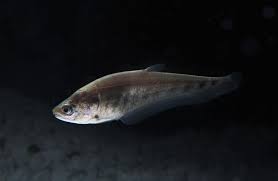1
/
of
1
Midwest Aquarium and Pond Supplier LLC
(4) Knifefish Clown 2-3in
(4) Knifefish Clown 2-3in
Regular price
$40.00 USD
Regular price
Sale price
$40.00 USD
Shipping calculated at checkout.
Quantity
Couldn't load pickup availability
The clown knifefish (Chitala ornata), also known as the clown featherback, is a large, predatory, and nocturnal freshwater fish native to Southeast Asia. It is often sold as a small juvenile in the aquarium trade but grows much too large for the average home aquarium and is suitable only for experienced aquarists with massive tanks
Appearance
- Body: They have an elongated, laterally compressed, knife-shaped body with a single, long anal fin that runs along the length of its underside. This fin allows them to move gracefully forward and backward.
-
Coloration: Clown knifefish are silvery-gray with a variable number of large, black, white-ringed spots along their flanks. Juveniles typically have stripes instead of spots. Albino variants are also available.
- Size: They can reach up to 3 feet in length in the wild, though they typically max out at around 18–24 inches in captivity.
- Unique feature: They can breathe air from the surface, which allows them to survive in stagnant water with low oxygen.
Care and tank setup
- Tank size: A minimum of 200 gallons is recommended for an adult clown knifefish. Tank length and width are more important than height.
-
Water parameters: They are hardy but sensitive to poor water quality.
-
Temperature:
75–82°F (24–28°C).
- pH: 6.0–7.5.
-
Temperature:
- Aquascaping: As nocturnal fish, they require plenty of hiding places, such as caves, large driftwood, and dense vegetation. Subdued lighting can encourage them to be more active during the day.
-
Lid:
A tight-fitting, secure lid is essential, as they are known jumpers.
- Substrate: A fine, soft, sandy substrate is ideal, as they have delicate skin and may injure themselves on rougher surfaces.
Diet and feeding
- Carnivorous: Clown knifefish are predators that hunt live food, particularly during twilight hours.
- Aquarium diet: Offer a varied diet of frozen foods, including bloodworms, brine shrimp, and krill. With persistence, some can be trained to accept high-quality sinking pellets.
-
Nocturnal feeding:
Feeding them after the lights are off can help accommodate their nocturnal nature.
Behavior and tank mates
- Temperament: They are generally peaceful toward fish too large to be eaten but can be territorial toward their own species and similar knifefish.
- Predatory instinct: Any fish small enough to fit in their mouths, such as smaller tetras or invertebrates, will be considered prey.
-
Compatible tank mates:
- Large, robust fish: Good companions include large cichlids (like oscars), arowanas, and other large catfish.
- Other knifefish: In a very large aquarium with ample hiding spaces, it may be possible to keep multiple clown knifefish.
-
Incompatible tank mates:
Avoid smaller, slower-moving, or aggressive fish that could harass or be eaten by the knifefish
Share
No reviews

